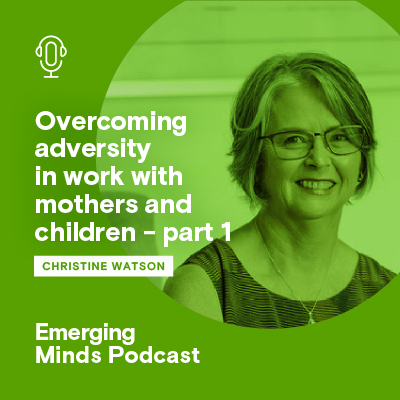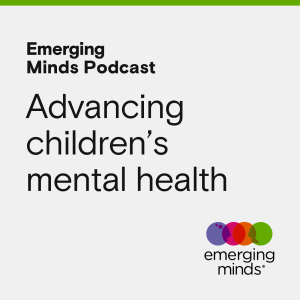
Overcoming adversity in work with mothers and children - part one
 2021-07-11
2021-07-11
Download
Right click and do "save link as"
Women who have experienced trauma and disadvantage throughout their lives are much more likely to develop mental health difficulties and substance use issues. This can seriously affect their ability to parent in safe and consistent ways, and can have significant negative impacts on children.
In the first episode of this two-part podcast series, Christine Watson, Clinical Director at Kamira Alcohol and Other Drug Treatment Services, talks about Kamira’s rehabilitation work with women experiencing substance use, and their children.
At Kamira, practitioners are interested in the contextual reasons that have made it more difficult for women to parent in safe and nurturing ways. Kamira’s residents are generally affected by their own experiences of trauma, as well as cultural, institutional and social discrimination. Many have also had children removed from their custody. Christine discusses how she and her staff work with these women on ways to provide safe and consistent care for their child. She also explores their strategies for helping women overcome historical issues which have prevented them from providing this care.
At the same time, Kamira’s programs focus on children’s mental health and wellbeing needs, in ways that can help enhance the lives of both mothers and children. Christine discusses the importance of therapeutic interventions that encourage women to see their children’s needs as a motivation for change. She considers how this focus can reduce the negative effects of stigma, and allow women to develop practical strategies for safe and secure parenting.
In this episode you will learn:
view more
- about the background of trauma, institutional and social discrimination experienced by many of the women in substance use programs, and the impact intergenerational disadvantage has on the lives of these women and their children [1:06]
- how to talk with women about their parenting in ways which avoid stigma, build trust and joy in the parent-child relationship, and help women to recognise the possibilities for change [8:32]
- how to help mothers understand their children’s experience, focusing on what the child might be feeling, thinking, or observing, and offering practical examples of how to support the communication between mother and child [14:55]
- the importance of routine in the lives of children and mothers, and how strong routines can be the key to establishing safer and more consistent environments for children [20:41].
More Episodes
Supporting children who engage in bullying
 2023-04-02
2023-04-02
 2023-04-02
2023-04-02
Supporting children who experience bullying
 2023-03-20
2023-03-20
 2023-03-20
2023-03-20
Navigating the first year of parenting
 2023-03-06
2023-03-06
 2023-03-06
2023-03-06
Graduate discoveries in infant mental health
 2023-02-20
2023-02-20
 2023-02-20
2023-02-20
012345678910111213141516171819
Create your
podcast in
minutes
- Full-featured podcast site
- Unlimited storage and bandwidth
- Comprehensive podcast stats
- Distribute to Apple Podcasts, Spotify, and more
- Make money with your podcast
It is Free
- Privacy Policy
- Cookie Policy
- Terms of Use
- Consent Preferences
- Copyright © 2015-2024 Podbean.com





